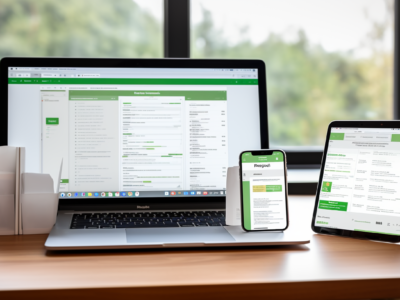Traveling to a foreign country can be an exciting adventure, but it can also be stressful when it comes to exchanging currency. Many travelers are concerned about getting the best exchange rates and avoiding unnecessary fees. Fortunately, there are several strategies that can help you get the most out of your money when traveling abroad.
One of the most important things to keep in mind is to avoid exchanging currency at airports or tourist areas. These locations often have higher fees and less favorable exchange rates. Instead, it is recommended to exchange currency at local banks or exchange offices in the city center, where rates are typically more competitive. Additionally, it is important to research the current exchange rate before traveling, so you have an idea of what to expect and can avoid being taken advantage of.
Another option to consider is using a credit card that does not charge foreign transaction fees. Many credit card companies offer this option, which can save you money on fees and provide a more favorable exchange rate. However, it is important to check with your credit card company to ensure that they do not charge any additional fees for foreign transactions. By following these tips, travelers can get the best exchange rates and save money during their travels.
Understanding Exchange Rates and Fees
When traveling abroad, it is important to have a basic understanding of exchange rates and fees in order to get the best deal possible. This section will cover the basics of exchange rates and common fees associated with currency exchange.
The Basics of Exchange Rates
Exchange rates are the value of one currency in relation to another. They are constantly changing and can be influenced by a variety of factors, including political events, economic indicators, and market trends. It is important to keep an eye on exchange rates before traveling to ensure that you are getting the best deal possible.
When exchanging currency, it is important to note that the exchange rate you see may not be the rate you actually receive. Many banks, credit cards, and currency exchange kiosks charge fees or offer unfavorable conversion rates that can significantly impact the amount of local currency you receive.
Common Fees Associated with Currency Exchange
There are several common fees associated with currency exchange that travelers should be aware of. These include transaction fees, foreign transaction fees, ATM fees, and dynamic currency conversion fees.
Transaction fees are fees charged by banks or credit card companies for exchanging currency. These fees can vary widely and may be a percentage of the transaction or a flat fee.
Foreign transaction fees are fees charged by credit card companies for using your card in a foreign country. These fees can range from 1% to 3% of the transaction amount.
ATM fees are fees charged by banks or ATM operators for using an ATM to withdraw cash. These fees can be especially high when using an ATM outside of your home country.
Dynamic currency conversion fees are fees charged by merchants or ATM operators for converting your purchase or withdrawal into your home currency. These fees can be high and often result in unfavorable exchange rates.
By understanding these fees and exchange rates, travelers can make informed decisions about how to exchange their money and avoid high fees. Local banks and credit unions may offer the best exchange rates and lowest fees, while airport kiosks and high-fee ATMs should be avoided whenever possible. Bank transfers and using a debit card with a PIN to withdraw local currency can also be good options for obtaining local currency.
Strategies for Getting the Best Exchange Rates
When traveling abroad, getting the best exchange rates can save you a significant amount of money. Here are some strategies to help you get the best exchange rates:
Using Credit and Debit Cards Abroad
Using a credit or debit card can be a convenient way to pay for purchases while traveling abroad. However, it’s important to choose a card that offers the best exchange rates and lowest fees. Capital One and Simple are examples of banks that offer credit and debit cards with no foreign transaction fees. Mastercard and Visa are widely accepted around the world and offer competitive exchange rates.
When and Where to Exchange Currency
Exchanging currency can be a good option if you want to have cash on hand. However, it’s important to know when and where to exchange currency to get the best rates. Avoid exchanging currency at tourist areas or airports, as they often offer lower rates. Instead, look for exchange services that offer the best rates and low fees, such as Wise or Travelex. It’s also a good idea to exchange currency in advance to avoid last-minute fees.
Alternative Currency Exchange Services
Alternative currency exchange services can offer competitive rates and low fees, making them a good option for travelers. Revolut is an example of a service that offers a multi-currency account with no hidden fees and the best rates. Home Bank also offers international transfers and multi-currency accounts for subscribers.
By following these strategies, travelers can get the best exchange rates and save money while traveling abroad.
How Many Dimes Make a Dollar
When traveling to a foreign country, it’s important to know the exchange rate between your home currency and the local currency. One common question that arises is how many dimes make a dollar.
In the United States, there are 10 dimes in a dollar. Each dime is worth 10 cents, so 10 dimes make a dollar. However, in other countries, the exchange rate may be different.
It’s important to research the exchange rate before traveling to ensure that you are getting the best value for your money. Many banks and exchange offices offer different rates, so it’s important to shop around and compare rates.
In addition to researching the exchange rate, it’s also important to be aware of any fees associated with exchanging currency. Some banks and exchange offices may charge fees or commission, which can reduce the amount of money you receive.
Overall, knowing how many dimes make a dollar is just one small part of understanding exchange rates when traveling. By doing your research and being aware of fees, you can ensure that you are getting the best value for your money.












